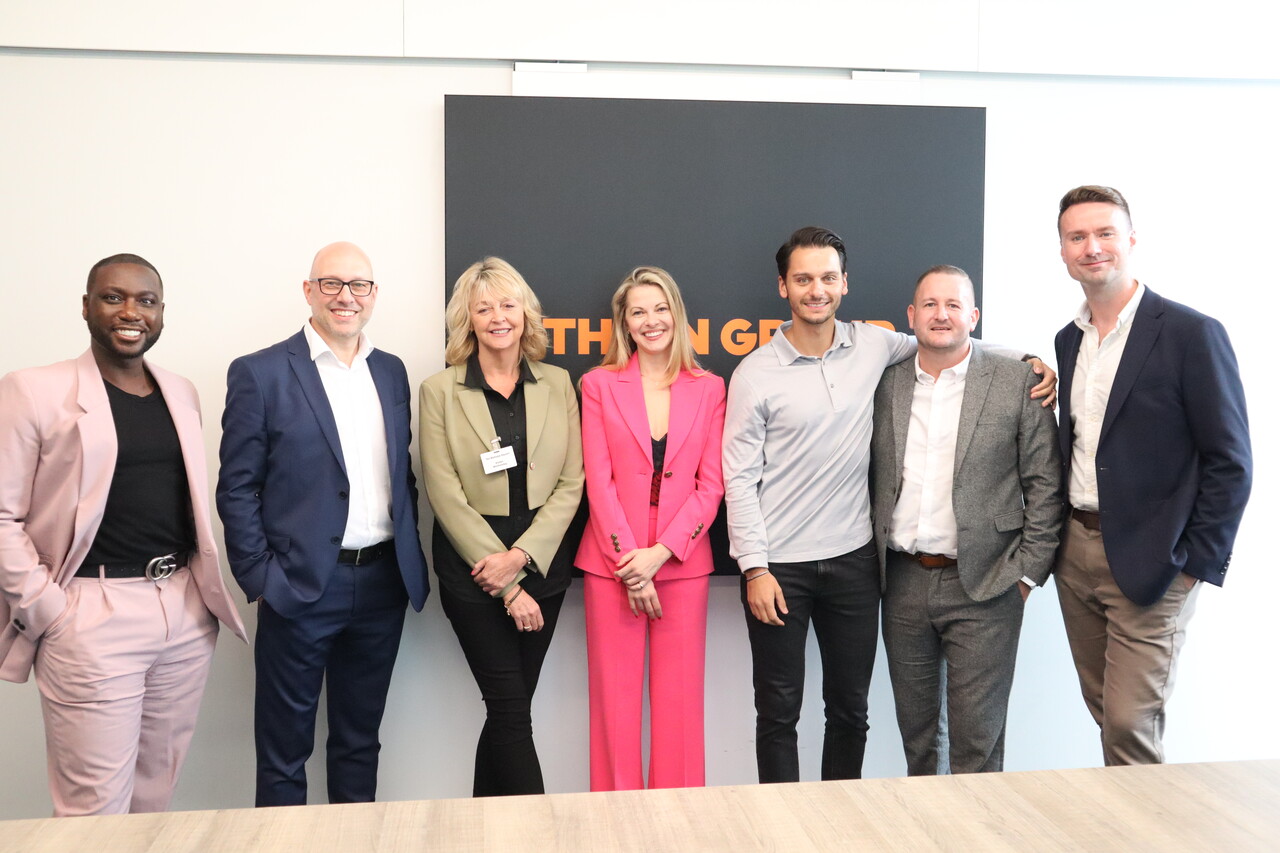written by Alex Alex Voskou
The IN Group, together with Change Awards, recently hosted the first ever Change Talks webinar in our London office. Change Talks is a series where we bring together winners and judges of the 2023 Change Awards as well as other influential figures from industry to share experiences and insights, as well as bring more focus and recognition to the Change Management profession.
In the first webinar, Karen Gregson – head of corporate change at BAE systems, hosted an insightful session where she was joined by leading change managers and Change Awards winners Mark Lean and Lyam-Richard Crosdale to reflect on the inaugural awards ceremony and share their personal change journeys. Here are our five key takeaways from the webinar.
You can watch the full webinar here.
1 – We need to keep talking
“It’s surprising that organisations are still asking ‘what is change management?’” Lyam-Richard Crosdale
From a niche profession that few organisations understood to an increasingly valued – and recognised – component of organisational success, change management’s come a long way over the last couple of decades. But now’s not the time to rest on our laurels.
Events like the Change Awards are key in continuing to raise the profile of the industry. They bring together a community of often-siloed individuals to share ideas, support each another and recognise top performance. Plus, it’s always impressive showing an award to a prospective employer.
We need to continue promoting change management as a profession, and not just within the industry itself. How? Keep talking about it. Change managers need to understand the community they’re working with and educate organisations on the value of what they bring.
2 – Relationships are everything
“It’s the conversation that happens outside of the room that really matters.” Lyam-Richard Crosdale
Resistance is a common obstacle in change management. Having an informal influencer in the business – an independent voice who can build productive relationships with challenging individuals – can help you land a difficult message in the right language.
Identify those change champions or change agents within the organisation. These are people who have worked in many different parts of the business and understand its people, processes and inner workings.
As the conduit between you and the business, they can speak to stakeholders on an informal basis to understand their concerns and frustrations. Don’t underestimate the impact of what Karen refers to as “informal stakeholder management in Costa Coffee.”
3 – Take people with you
“To truly embed and sustain change, you’ve got to bring people on that journey.” Mark Lean
When delivering change projects, it’s easy to become task and deliverable focused. But it’s important to understand the impact of people. From day one, if you want to deliver change successfully, you need to get your stakeholders onboard. Get out there and talk to them. Learn their language and use their feedback to help you change as you go. At the same time, challenge them on how you can do things differently.
By involving people from across the organisation and ensuring your leaders are aligned with what you’re doing, you’re making everyone a part of the change – and that makes them a lot more likely to buy into it.
4 – Change is a team game
There’s often the perception that the ownership for delivering change is on the change manager, and the change manager alone. But their role is to facilitate, helping each sponsor land this change within their business area.
It’s important to achieve clarity and alignment as early as possible so that your stakeholders – whether HR business partners, corporate comms, sponsors or programme managers – are clear on what’s expected of them. Leaders need to be able to articulate the end vision for their teams, so that everyone understands their role in the project.
Manage expectations throughout and be clear on what’s required. Look at the capabilities needed to drive change forward, but remember these will vary depending on an organisation’s size and maturity.
5 – Change is ongoing
“You can learn a lot from things that go wrong, probably more than you can from a project that goes well.” Mark Lean
When your project’s gone live, you need to embed that way of working into the very fabric of the business. Change management’s about constant improvement, factoring in the lessons from each assignment to make incremental gains for the next.
Review what worked well, what didn’t (and why) and what you would do differently. Ask your community where they think you could improve. There’s more than a practical side to this; there’s a cultural side, too. People will know that their suggestions are appreciated and that they won’t be penalised for making a mistake – creating an environment that removes the fear of failure and encourages innovation.
The In Group is the principal sponsor and proud partner of the Change Awards, which aim to celebrate the unsung heroes in change management. Find out more in our interview with Change Awards founder, Margo Waldorf.
If you’re looking for a talented change manager to help transform your business or for a fantastic opportunity to change an organisation for the better, please contact our change and transformation team.
You can watch the full webinar here.
Share this:




